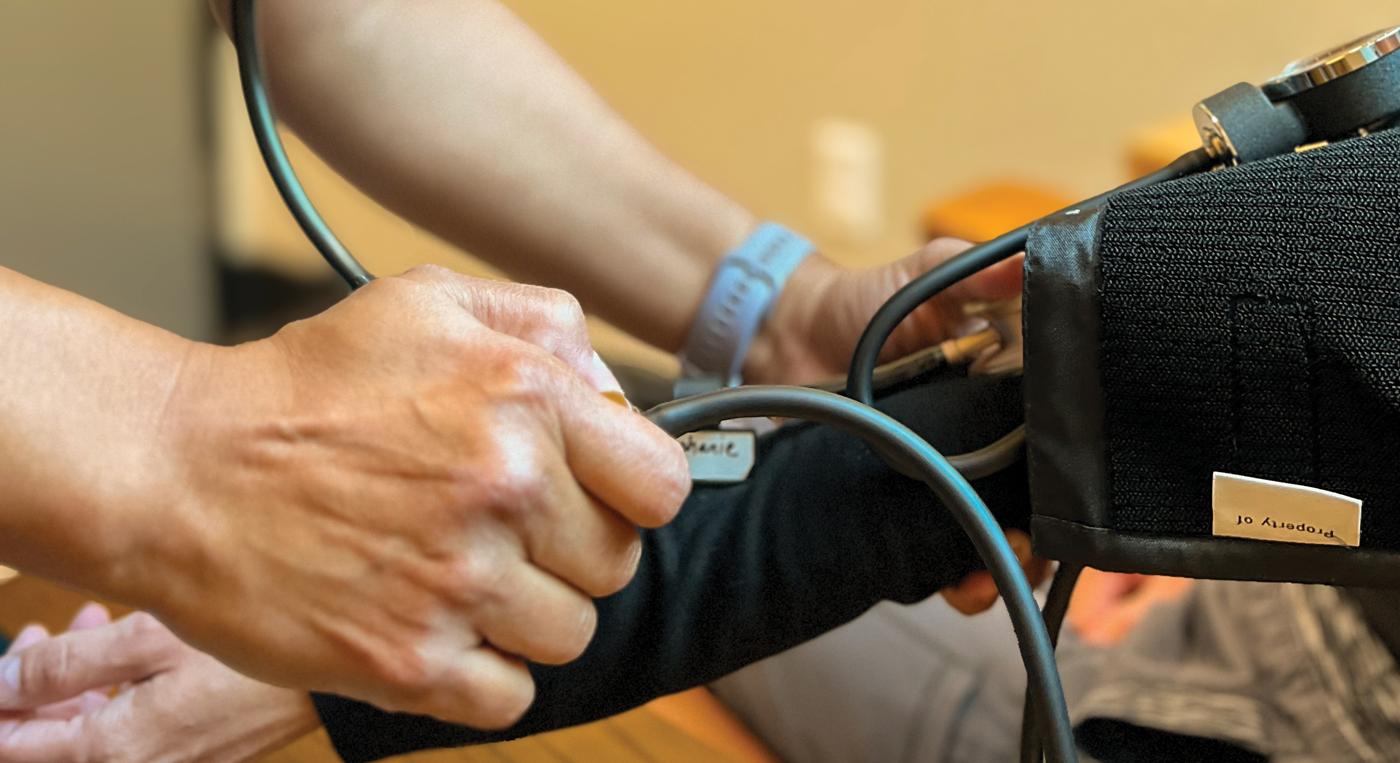Feeling brain fog? High anxiety? Trouble sleeping? In a chronically stressed society, we get used to living in these states or dismiss them as natural parts of aging. But functional medicine practitioners encourage us to look closer at what deficiencies might be underneath low energy, chronic pain, weight gain, or other challenges. Hormone replacement therapy — or, as providers prefer, hormone optimization — may help people improve their health, energy level, mental clarity, and sense of well-being.
Functional medicine focuses on the endocrine system — a network of glands and cells that produce and release hormones that tell other parts of the body how and when to function. This approach centers on nutrition, exercise, and hormonal balance. Dr. Kristian Ferry, surgical oncologist and founder of Hale Men’s Clinic, admits that when he first learned about functional medicine, he thought it sounded “like theory, conjecture, and fun thoughts.” In humans, multiple integrated systems work together. “But this preventative style of medicine picks out the endocrine system because, for one thing, it’s pivotal to the function of all mammals,” he says. “And second is that it’s what fails in humans fairly early in life. If you restore the endocrine system, then you have a better chance of staying healthy and happy and having better longevity — matching your health span to your lifespan.”
Dr. Nisha Jackson, founder of OnePeak Medical, flags a key difference in how conventional and functional medicines address symptoms. “Conventional medicine wants to know what is the problem and what should I use to treat it? Functional medicine asks why do you have this problem? Then, it solves that problem.” A person with high cholesterol, for example, may simply be given a statin in conventional medicine, but Jackson’s clinics check for related imbalances causing the cholesterol level, such as hypothyroidism, fatty acid deficiency, or poor diet and sleep.

“Hormones can be tested at any time and imbalances can be corrected,” Jackson says. “Things like progesterone deficiency, which is our mood hormone, can lead to heavy periods, irregular bleeding, uterine fibroids, breast cysts, weight gain, depression, and anxiety.” Meanwhile, low estrogen and testosterone in women could cause low libido, insomnia, sweating, and forgetfulness. Take menopause symptoms, she says. “Women don’t deserve to live a third of their life in complete and utter hormone deficit. It can be managed in a safe way.”
Dr. Justin Morse, founder of Absolute Health Medical Center, says people may get used to a certain norm and overlook concerns like thinning hair, fatigue, or decreased strength. Individuals should consider getting tested if they “aren’t feeling the same as they used to,” Morse says. “It could’ve been a change a year ago, five years ago, but something changed in their life.”
Practitioners note that hormonal imbalances may go underdiagnosed and untreated given the difference between normal and optimal levels. When primary care providers run labs, most check for results within the expected range established by the medical community. This means patients have to be below the low end of a hormone range to be technically deficient and referred for treatment. But they may already be suffering from related symptoms. Dr. Morse notes that his clinic uses lab work as a guide, but also reviews symptoms to fine tune optimal hormone levels on an individual basis.
Bioidentical hormones match the molecular structure of what human bodies naturally produce. They can be provided in a few different forms: topical creams, subdermal pellets that last about three months, or intramuscular injections about every one to four weeks. Providers say this individualized treatment works best paired with personalized diet, exercise, and lifestyle changes to support overall health.
Practices see patients ranging from their late teens into their 80s. Hormone optimization from a specialized clinic can be a life-changing complement to a patient’s primary health care. While new patients may feel some hesitancy around the treatment, functional medicine providers encourage them to talk to friends and family who have experience with hormonal supplementation, ask their primary care providers about the treatment, and set up an initial consultation with a specialist to get their questions answered.

Hormone Replacement Therapy for Men
Men’s testosterone levels drop 1–2% per year through their lifetime. Over time, this male menopause, or andropause, can result in many symptoms, including reduced energy, low libido, trouble sleeping, and depression. While some men may write this off as “just getting old,” says Eva Schmidt, nurse practitioner at Hale Men’s Clinic, “there’s a difference between healthy aging and accepted aging. We offer a way to age healthfully rather than the accepted slow decline that’s typical for the aging population in the standard-care world.”
But it’s not only older men who can benefit from hormone optimization. Testosterone rates are declining earlier in men — potentially due to harmful chemicals exposure and increased stress.
“Having low testosterone is somewhat of a stigma for men,”says Hale founder Dr. Kristian Ferry. “They think they’re less macho. But your testosterone level is no way related to how much of a man you are. Before men start treatment, they are a little shy about it and don’t want people to know, but once they start, it’s all they can talk about to everybody, what their symptoms were before versus now.”
Harlan Wolff, clinical educator at Hale Men’s Clinic, hears ample stories from men referred by friends who boast about how much better they feel — and he can relate. “I started testosterone when I was 35. My levels were in the gutter. It has greatly improved my life. I became so passionate about it that I never stopped learning. Now, I’m a clinical educator because I want to empower others to know that healthy changes are possible.”
Absolute Health Medical Center
4765 Village Plaza Loop, Suite 201
541/636-3100
absolutehealtheugene.com
Hale Men’s Clinic
4780 Village Plaza Loop, Suite 200
541/228-3267
halemensclinic.com
OnePeak Medical
992 Country Club Rd., Suite 201
541/246-6613
1755 Coburg Rd, Suite 601
541/204-4745
3312 Gateway St., Springfield
541/204-4745
onepeakmedical.com


